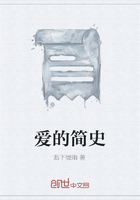At Nuttlebury she passed the village inn, whose sign creaked in response to the greeting of her fo otsteps, wh ich not a h uman soul h eard but h erself.Under the thatched roofs her mind's ey e beheld r elaxed ten dons and flaccid muscles, spread ou t in the darkness beneath co verlets made of little p urple patchwork squares, and undergoing a bracing pro cess at the hands of sleep for renewed labour on the morrow, as soon as a hint of pink nebulosity appeared on Hambledon Hill.
At three she turned the last corner of the maze of lanes she h ad threaded, and entered Marlott, passing the field in which, as a clubgirl, she had first seen Angel Clare, when he had not danced with her; the sense of disappointment remained with her yet.In the direction of her mother's house she saw a light.It came from the bedroom window, and a branch waved in front of it and made it wink at h er.As soon as she could discern th e outline of the house—newly thatched with her money—it had all its old effect upon Tess's imagination.Part of her body and life it ever seemed to be; the slopes of its dormers, the finish of its gab les, the broken courses of brick which topped the chimney, all had something in co mmon with her per sonal char acter.A s tupefaction had come
into these features, to her regard; it meant the illness of her mother.
She opened the door so softly as to disturb nobody; the lower roo m was vacant, but the neighbour who was sitting up with her mother came to the top of the stairs, and whispered th at Mrs.Durbeyfield was no better, though she was sleep ing just th en.Tess prepar ed herse lf a br eakfast, an d then to ok h er place as nurse in her mother's chamber.
In the morning, when s he contem plated the ch ildren, they had all a curiously elongated look; although she had been away a little more than a year their growth was astoun ding; and the necessity of apply ing herself heart and soul to their needs took her out of her own cares.
Her father's ill-health was of the same indefinite kind, and he sat in his chair as usual.But th e day after her arrival he was unusually bright.He had a rational scheme for living, and Tess asked him what it was.
“I'm thinking of sending round to all the old antiqueerians in this part of England, ”he said, “asking them to subscribe to a fund to maintain me.I'm sure they'd see it as a romantical, artistical, and proper thing to do.They spend lots o'money in keeping up old ruins, and finding the bones o'things, and such like; and living remains must be more interesting to'em still, if they only knowed of me.Would that so mebody would go round and tell'em what there is livin g among'em, and they thinking no thing of him!If Pa'son Tringham, who discovered me, had lived, he'd ha'done it, I'm sure.”
Tess postpo ned her arguments o n th is high pro ject till sh e had grapp led with pressing matters in hand, which seemed little improved by her remittances.When indoo r necessities had been eased she tur ned her attention to ex ternal things.It w as now the season for p lanting and sowing; many gardens and allotments o f th e v illagers had alrea dy receiv ed their spr ing tillage; but the garden and the allotment of th e Durbeyfields were behindhand.She foun d, to her dismay, that this was owing to th eir having eaten all th e seed potatoes, —that last lapse of the improvident.At the earliest moment she obt ained what others she could procure, and in a few day s her father was w ell enough to see to the garden, under Tess's persuasive efforts:while she herself undertook the allotment-plot which they rented in a field a couple of hundred yards out of the village.
She liked do ing it af ter the conf inement of the sick cha mber, where sh e was not now required by reason of her mother's improvement.Violent motion relieved thought.The plot of ground was in a h igh, dry, open enclosure, where there were forty or fifty such pieces and where labour was at its briskes t when the hired labour of the d ay had en ded.Digging began usually at six o'clock, and extended indefinitely into the dusk or moonlight.Just now heaps of dead weeds and refuse were burning on many of the plots, the dry weather favouring their combustion.
One fine day Tess and'Liza-Lu worked on here with their neighbours till the last rays of the sun smote flat upon the white pegs that divided the plots.As soon as tw ilight succeeded to su nset the f lare of the couch-grass and cabbagestalk fires began to light the allotments fitfully, their outlines appearing and disappearing under the dense smoke as wafted by the win d.When a fire glowed, ban ks of ** oke, blown lev el alon g the ground, would them selves become illuminated to an opaque lu stre, screening the work people fro m one another; and the meaning of the“pillar of a cloud, ”which w as a wall by day and a light by night, could be understood.
As evening thickened some of the gardening men and wo men gave ov er for the night, but the greater number remained to get their planting done, Tess being am ong them, though she s ent her sis ter home.It was on one of th e couchburning plots that she labour ed with her fo rk, its f our shining pro ngs resounding against the stones and dry clods in little clicks.Sometimes she was completely involved in the smoke of her fire; then it would leave her figure free, irradiated by the br assy glare from the heap.She was oddly dressed ton ight, and presented a so mewhat staring aspect, her attire being a g own bleached by many washings, with a short black jacket over it, the effect of the whole bein g that of a wedding and funeral guest in one.The women further back wore white aprons, which, with their pale faces, were all that could beeen of them in the gloom, except when at moments they caught a flash from the flames.
Westward, the wiry bou ghs of the bare thorn hedge which formed the boundary of the field rose against the pale opalescence of the lower sky.Above, Jupiter hung like a full-blown jonquil, so bright as almost to throw a shade.A few s mall n onde s tars were ap pearing elsewhere.In th e dis tance a dogbarked, and wheels occasionally rattled along the dry road.
Still th e pr ongs continued to click assiduously, for it was not late; an d though the air was fres h and keen there was a whisper of spring in it th at cheered the workers on.Something in the place, the hour, the crackling fires, the fantastic mysteries of light and shade, made others as well as Tess enjoy being there.Nightfall, which in the frost of winter comes as a friend and in the warmth of summer as a lover, came as a tranquillizer on this March day.
Nobody looked at his or her companions.The eyes of all were on th e soil as its turned surface was revealed by the fires.Hence as Tess stirred the clods, and sang her foolish little songs with scarce now a hope that Clare would ever hear them, she did not fo r a long time notice the person who worked nearest to her—a man in a long smockfrock who, she found, was forking the same plot as herself, and whom she supposed her father had sent there to advance the work.She became more conscious of h im when the direction of his digging brought him closer.Sometimes the smoke divided them; then it swer ved, and th e two were visible to each other but divided from all the rest.
Tess did no t speak to her fellow-worker, nor did h e speak to her.Nor did she think of him further than to recollect that he had not been there when it was broad day light, and that she did no t know him as any one of the Mar lott labourers, which was no wonder, her absences having been so long andfrequent of late y ears.By-and-by he dug so clos e to her that the fir e-beams were reflected as distinctly from the steel prongs o f his for k as from her own.On going up to the fire to throw a p itch of dead weeds upon it, she found that he did the same on the other side.The fire flared up, and she beheld the face of d'Urbervillc.
The unexpectedness of his presence, the grotesqueness now worn only by the most old-fashioned of the labourers, had a gh astly comicality that chilled her as to its bearing.D'Urberville emitted a low long laugh.
“If I were in clined to joke I should s ay, How much this of his appearance in a g athered ** ockfrock, such as was seem s like Paradi se!”he remar ked whimsically, looking at her with an inclined head.
“What do you say?”she weakly asked.
“A jester might say this is just like Paradise.You are Eve, and I am the oldOther One come to tempt you in the disguise of an inferior animal.I used to bequite up in that scene of Milton's when I was theological.Some of it goes—
‘Empress, the way is ready, and not long,
Beyond a row of myrtles……
……If thou accept
My conduct, I can bring thee thither soon.'
‘Lead then, 'said Eve.
And so on.My dear, dear Tess, I am only putting this to you as a thing that you might have supposed or said qu ite untruly, because y ou think so bad ly of me.”
“I never said y ou were Satan, or thought it.I do n't think of you in th at way at all.My thoughts of y ou are quite cold, except when you affront me.What, did you come digging here entirely because of me?”
“Entirely.To see you; nothing more.The smockfrock, which I saw hanging for sale as I cam e along, was an after-thought, that I mightn't be noticed.I come to protest against your working like this.”
“But I like doing it—it is for my father.”
“Your engagement at the other place is ended?”
“Yes.”
“Where are you going to next?To join your dear husband?”
She could not bear the humiliating reminder.
“O—I don't know!”she said bitterly.“I have no husband!”
“It is quite true—in the sense you mean.But you have a friend, and I have determined that you shall be co mfortable in spite of y ourself.When you get down to your house you will see what I have sent there for you.”
“O, Alec, I wish y ou wouldn't give m e anything at all!I cannot take it from you!I don't like—it is not right!”
“It is right!”he said lightly.“I am no t going to see a wo man whom I feel so tenderly for as I do for you, in trouble without trying to help her.”
“But I am v ery well of f!I am only in trouble ab out—about—not abou t living at all!”
She turned, and desperately resumed her digging, tears dripping upon th e fork-handle and upon the clods.
“About the children—your brothers and sisters, ”he resumed.“I've been thinking of them.”
Tess's heart quivered—he was touching her in a weak place.He had divined her chief anxiety.Since returning home her soul had gone out to those children with an affection that was passionate.
“If y our m other does not recover, so mebody ought to do so mething fo r them; since your father will not be able to do much, I suppose?”
“He can with my assistance.He must!”
“And with mine.”
“No, sir!”
“How damned foolish this is!”burst out d'Urberville.“Why, he thinks we are the same family; and will be quite satisfied!”
“He don't.I've undeceived him.”
“The more fool you!”
D'Urberville in anger retreated from her to the hedge, where he pulled of f the long smockfrock which had disguised him; and rolling it up and pushing it into the couch-fire, went away.
Tess could not get on with her dig ging after th is; she felt r estless; sh e wondered if he had gone back to her father's house; and takin g the fork in her hand proceeded homewards.
Some twenty yards from the house she was met by one of her sisters.
“O, Tessy—what do y ou think!'Liza-Lu is a-cry ing, and ther e's a lot o f folk in the house, and mother is a good deal better, bu t th ey think fath er is dead!”
The child realized the grandeur of the news; but not as yet its sadness; and stood looking at Tess w ith roundey ed im portance, till, beho lding the ef fect produced upon her, she said—
“What, Tess, shan't we talk to father never no more?”
“But father was only a little bit ill!”exclaimed Tess distractedly.
'Liza-Lu came up.
“He dropped down just now, and the doctor who was there for mother said there was no chance for him, because his heart was growed in.”
Yes, the Durbeyfield couple had changed places; the dying one was out ofdanger, and the indisposed one was dead.The news meant even more than it sounded.Her father's life had a valu e apart from his personal achievements, or perhaps it would not have had much.It was the last of the three lives for whose duration the house and premises were held under a lease; and it had long b een coveted by the tenan tfarmer for h is regular labourers, who were stin ted in cottage accommodations.Moreover, “liviers”were disapproved of in villages almost as much as little freeholders, because of their independence of manner, and when a lease determined it was never renewed.
Thus the Durbeyfields, once d'Urbervilles, saw descending upon them the destiny which, no doubt, when they were among the Olympians of the county, they had caused to descend many a time, and severely enough, upon the heads of such landless ones as they themselves were now.So do flux and reflux—the rhythm of change—alternate and persist in everything under the sky.
51
At length it was the eve of Old Lady-Day, and the agricultural worldwas in a fever of mobility such as only occurs at that particular date of the year, It is a day of fulfilment; agreements for outdoor service during the ensuing year, entered in to at Cand lemas, are to be now carried ou t.The labour ers—or“work-folk, ”as they used to cal l themselves immemorially till the other word was introduced from without—who wish to remain no longer in old places are removing to the new farms.
These ann ual migrations fro m far m to far m wer e on th e in crease her e.When Tess's mother was a ch ild the majority of the field-folk about Marlott had remained all their lives on one farm, which had been the home also of their fathers and grandfathers; but latterly the desire for yearly removal had risen to a high pitch.With the y ounger families it was a pleasant ex citement wh ich might poss ibly be an advantag e.Th e Egy pt of one fa mily was the Lan d of Promise to t he fa mily who saw it fr om a d istance, till by re sidence there it became in turn their Egypt also; and so they changed and changed.
However, all the mutations so increa singly discernible in village life did not originate entirely in the agricultur al unrest.A depopulation was also going on.The village had for merly con tained, sid e by side w ith the agr icultural labourers, an interesting and better-informed class, ranking distinctly above the former—the class to w hich Tess's father and mother had belong ed—and including the carpenter, the smith, the shoemaker, the hucks ter, together w ith nonde workers oth er than f arm-labourers; a set of peop le who owed a certain stability of aim and condu ct to the fact of their being life-holders like Tess's father, or copy holders, or, occasionally, small freeho lders.But as the long holdings fell in they were seldom again let to similar tenants, an d were mostly pulled down, if not abso lutely required b y the far mer for his han ds.Cottagers who were not directly employed on the land were looked upon with disfavour, and the banishment of some starved the trad e of o thers, who were thus obliged to fo llow.These families, who had formed the backbone of the village life in the pas t, who were the depositaries of the v illage traditions, had to seek refu ge in th e la rge cen tres; the pro cess, hu morously design ated by statisticians as“the tendency of the rural population towards the large towns, ”being really the tendency of water to flow uphill when forced by machinery.
The c ottage acco mmodation a t M arlott h aving been in this manner considerably curtailed by demolitions, every hous e which remained standing was required by the agriculturist for his work-people.Ever since the occurrence of the event which had cast such a shadow over Tess's life, the Durbeyfield family(whose descen t was not credited)had b een tacitly looked on as one which would have to g o when their le ase ended, if only in the in terests of morality.It was, indeed, quite true that th e household had n ot been shin ingexamples either of temperance, soberness, or chastity.The father, and even the mother, h ad got dr unk at times, the y ounger childr en seld om had gon e to church, and the eldest daughter h ad made queer unions, By some means the village had to be kep t pure.So on this, th e first Lady-Day on which th e Durbeyfields were expellable, the house, being roomy, was required for a carter with a large family; and Widow Joan, her daughters Tess and'Liza-Lu, the boy Abraham and the younger children, had to go elsewhere.
On the even ing precedin g their remo val it was getting dark betimes by reason of a drizzling rain which blur red the sky.As it was the last n ight they would spend in the village which had been th eir ho me and birthplace, Mrs.Durbeyfield, 'Liza-Lu, and Abraham h ad gon e out to bid some friends good-bye, and Tess was keeping house till they should return.
She was kneeling in th e window-ben ch, her face close to the casement, where an ou ter pane of r ain-water was sliding d own the inn er pane of glass.Her eyes rested on the web of a sp ider, probably starved long ago, which had been mistakenly placed in a corner where no flies ever came, and shivered in the slight draught through the casement.Tess was reflecting on the position of the househo ld, in which she perceived her own evil influence.Had she n ot come home her mother and the childr en might probably have been allowed to stay on as weekly tenants.But she had been observed almost immediately on her return by some people of scrupulous character and great influence:they had seen her idling in the churchyard, restoring as well as she could with a little trowel a baby's obliterated grave.By this means they had fou nd that she was living here again; her mother was sco lded for“harbouring”her; sharp r etorts had ensued from Joan, who had independently offered to leave at once; she had been taken at her word; and here was the result.
“I ought never to have come home, ”said Tess to herself, bitterly.
She was so intent upon these thoughts that she hardly at first took note of a man in a white mackintosh whom she saw riding down the street.Possibly it was owing to her face b eing near to the pane that he saw her so quickly, and directed his horse so close to the cottage-front that his hoofs were almost up on the narrow border for plants growing under the wall.It was no t till he touched the window with his rid ingcrop that she observed him.The rain had nearlyceased, and she opened the casement in obedience to his gesture.
“Didn't you see me?”asked d'Urberville.
“I was not attending, ”she said.“I heard y ou, I believe, though I fancied it was a carriage and horses.I was in a sort of dream.”
“Ah!you heard th e d'Urberville Co ach, perhaps.You know the legend I suppose?”
“No.My—somebody was going to tell it me once, but didn't.”
“If you are a genuine d'Urberville I ought not to tell you either, I suppose.As for me, I'm a sham one, so it doesn't matter.It is rather dismal.It is that this sound of a nonexistent coach can only be heard b y one of d'Urberville blood, and it is held to be of ill-o men to th e one who hears it.It has to do with a murder, committed by one of the family, centuries ago.”
“Now you have begun it, finish it.”
“Very well.One of th e family is said to h ave abducted so me beau tiful woman, who tried to escape from the coach in which he was carrying her off, and in th e struggle he k illed her—or she killed h im—I forget which.Such is one version of the tale……I see that y our tubs and buckets ar e packed.Go ing away, aren't you?”
“Yes, tomorrow—Old Lady-Day.”
“I heard you were, but could hardly believe it; it seems so sudden.Why is it?”
“Father's was the last life on the prop erty, and when that drop ped we had no furth er right to stay.Though we might, perh aps, have s tayed as week ly tenants—if it had not been for me.”
“What about you?”
“I am not a—proper woman.”
D'Urberville's face flushed.
“What a blasted shame!Miserable snobs!May their dirty souls be burnt to cinders!”he exclaimed in tones of ironic r esentment.“That's why you are going, is it?Turned out?”
“We are not turned out exactly; but as they said we should have to go soon, it was bes t to go now every body was m oving, because there are b etter chances.”
“Where are you going to?”
“Kingsbere.We have taken ro oms there.Mother is so f oolish abou t father's people that she will go there.”
“But your mother's family are not fit for lodgings, and in a little hole of a town like that.Now why not come to my garden-house at Trantridge?There are hardly any poultry now, since my mother's death; but there's the house, as you know it, and the garden.It can be white-washed in a day, and your mother can live ther e q uite co mfortably; and I will pu t the children to a good sch ool.Really I ought to do something for you!”
“But we have already taken the roo ms at Kingsber e!”she declared.“And we can wait there—”
“Wait—what for?For that nice husband, no doubt.Now look here, T ess, I know what men are, and, bearing in mind the grounds of your separation, I am quite positive he will never make it up with you.Now, though I have been your enemy, I am y our friend, even if y ou won't believe it.Co me to this cottag e of mine.We'll get up a r egular colony of fowls, an d your mother can attend to them excellently; and the children can go to school.”
Tess breathed more and more quickly, and at length she said—
“How do I know that you would do all this?Your views may change—and then—we should be—my mother would be—homeless again.”
“O no—no.I would g uarantee y ou against such as th at in writing, if necessary.Think it over.”














